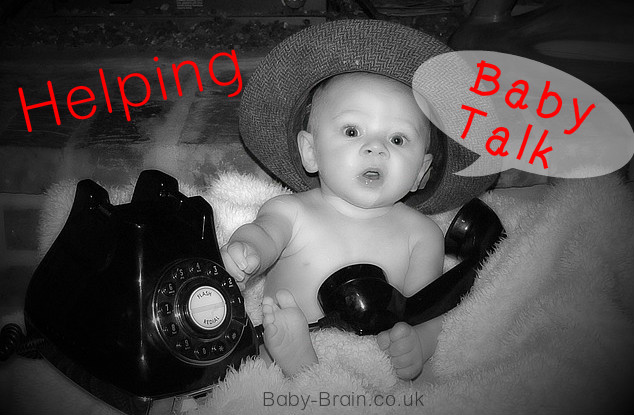16.5 months – we are copying a lot more words. Yesterday he learnt to say “cheese”, and “ring”. He can copy quite a few words now and use them appropriately. For example, today he went to the fridge, found the cheese and asked for cheese.
He doesn’t always pronounce everything “right” though. I’ve also noticed him trying to “talk” by saying nonsense words, with the odd real word in there like “bus”, usually relating to something we’ve just been playing with or is in front of him (e.g. toy bus).
What should I expect of baby talk?
-
The NHS has a nice page here on helping your child’s speech.
Verbal communication and all those other related skills (non-verbal, facial expression, gesture, words, etc) are SKILLS. Babies and infants need to understand communication and words before they can learn to use these skills themselves. How can you teach and build these vital skills with infants? The site above writes:
You can help your child learn by holding them close, making eye contact and talking to them as soon as they’re born.
They will look back at you and very soon begin to understand how conversations work.
Even making ‘baby noises’ will teach your baby useful lessons about listening, the importance of words and taking turns in a conversation.
When baby gets a bit older and starts to notice and take interest in their surroundings:
Start naming and pointing at things that you can both see (‘Look, a cat!’). This will help your baby learn words and, in time, they’ll start to copy you.”
Putting words together:
We haven’t started this yet, but apparently it doesn’t happen until around age 2, when toddler can say around 100 words.
Other baby talk tips:
-
From day one – asking questions such as, “are you hungry?” or “would you like some milk?”
-
When you’re out with baby or around the house – pointing out objects and saying things such as “look, there’s a dog!”
-
If baby can partly say a word, e.g. “poon” (spoon), then repeat the word in it’s correct form – “yes, spoon”, rather than copy baby so that they can hear the full pronunciation
-
Give baby choices and questions to increase their vocabulary such as “would you like a strawberry yoghurt or an apple”
Concerns about your child’s speech?
This website, Talking Point, has a lot of information about children’s communication, broken down into ages and stages from 0 to 17 years old, such as this page here about development at 12-18 months.
They also have “progress checkers“, such as the one here for 12 month olds, and one for 18 months old (other ages available), that asks a series of questions about what baby can do.
- For the progress checker please note they write that: “This Progress Checker has been written by speech and language therapists, based on typical developmental milestones – It is intended to be used as a guide only. No diagnosis can be made as children are not seen face to face – It is possible that concerns may be highlighted when there are not issues with children’s speech and language. If in doubt, check with a health visitor or speech and language therapist – If your child has just had a birthday, you might want to look at the age-group younger than them. Similarly, if your child is coming up to a birthday, you might want to check the age-group older than them.

